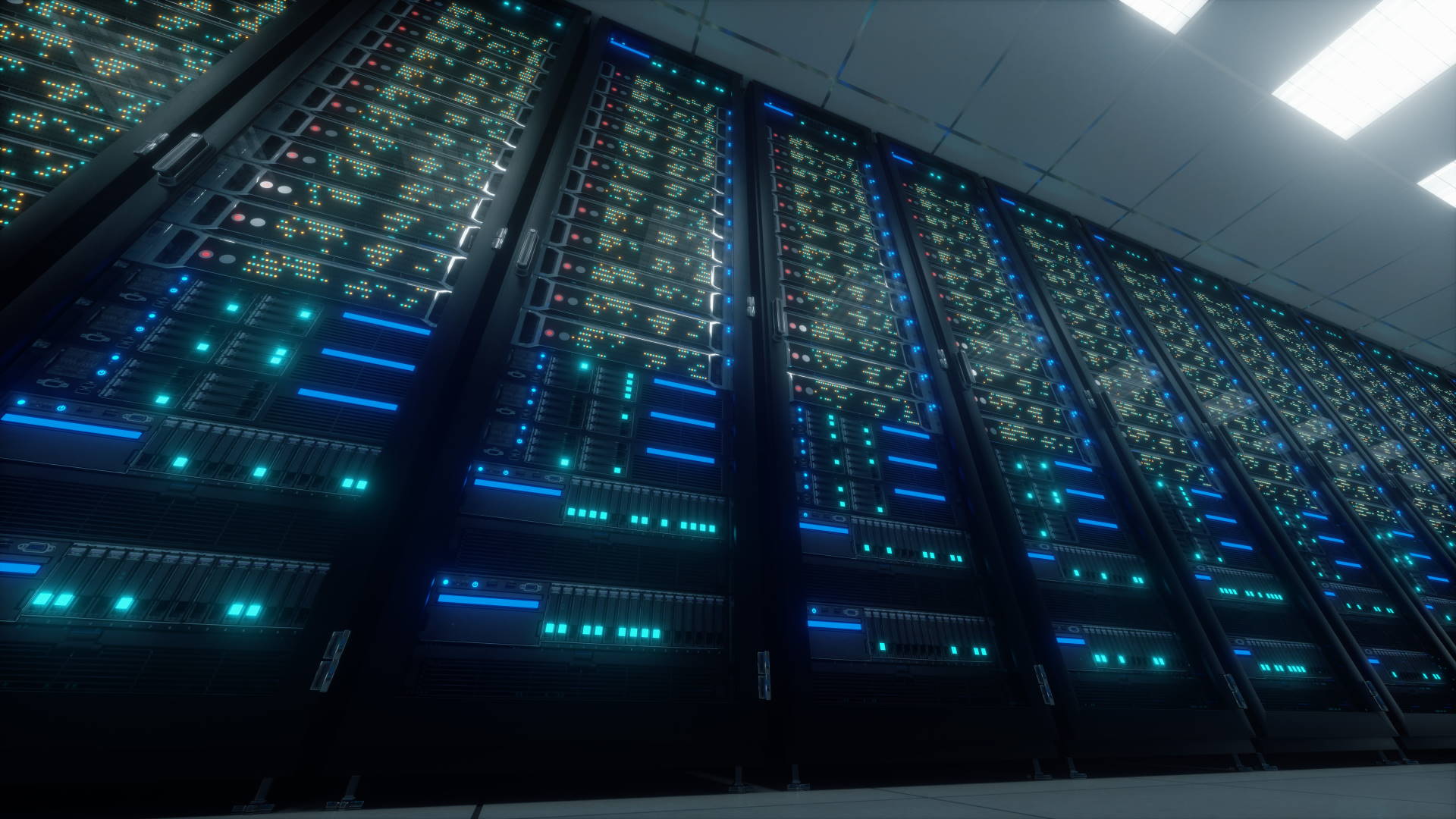Michigan township sued by AI data center builder and disgruntled residents over opposition to the site — mounting concerns about rising power bills and water usage fuel growing skepticism
AI data center tax revenue and city investments become a harder sell when power bills go up.

AI data centers are popping up in so many locations that they might eventually get a scientific mushroom species name. The industry has seen around a trillion dollars' worth of investment and deals in the past weeks alone, but the high power and water usage of AI data centers come at a price for their surrounding locations. Many U.S. cities don't welcome the prospect, and the case of Saline Township in Michigan is the latest in a string of pushbacks, as told by the Washington Post. It certainly won't be the last, either.
Saline Township wanted to refuse a 250-acre data center proposed by Related Digital (RD). However, the township got sued by both RD and some of its residents who either had an interest in selling their land for the development or welcomed the investment. To avoid a protracted court battle that could hypothetically backfire, the township settled, gaining some concessions like limits on water usage and millions in investments in the local fire department and public buildings.
This story and others like it are becoming a theme around the country, as cities become increasingly aware of the danger that an AI data center could pose to citizens' power bills and the environment. Over the past couple of months, Microsoft cancelled a data center in Wisconsin, while Pennsylvania is fighting with high power prices. Concerns are mounting about near-future power demand, who's footing the bill for the necessary grid expansions, and the rise of local wholesale power prices.
Additionally, the report notes that construction jobs created during the build of a data center are merely temporary, and that after they're done, the data centers generally don't require a lot of employees to keep running. Sometimes, they substantially raise noise levels and pollution, as is apparently the case in Memphis, where there were protests about an xAI data center that uses natural gas turbines to power its servers.
Although data center investments bring in tax revenue and oftentimes direct investment in local initiatives, the tide is quickly turning against tech companies, particularly in the last few months. According to the Washington Post, "at least one city" has issued a one-year moratorium on data center development, while Missouri's St. Charles passed a similar moratorium with a one-year ban.
In the latter case, CRG wanted to build a 440-acre data center near multiple wells, backed by an unnamed tech company. The township reportedly didn't get straight answers from the developers about the water usage and noise pollution, with one constituent remarking the companies seemed to want to "shove [the project] down the people’s throats". After drawing strong criticism, CRG withdrew its application, and the city council called a special meeting to ban data centers for one year, passing it unanimously.
Lordstown in Ohio is on the verge of joining the ban club, even after welcoming a Softbank investment related to the Stargate project. The report says the town wasn't meant to host a full-scale data center, but would instead repurpose a factory to make data center components, doing double duty as a showroom. The town acknowledges the rebuilt facility would be a symbolic victory, as it was once a General Motors plant that provided jobs until its closure in 2019.
Get Tom's Hardware's best news and in-depth reviews, straight to your inbox.
However, that positivity quickly waned as prospects of a full-size data center seemed possible after OpenAI's announcements, and the city council issued a permanent restriction on new data centers, exempting the Softbank investment.

Follow Tom's Hardware on Google News, or add us as a preferred source, to get our latest news, analysis, & reviews in your feeds.

Bruno Ferreira is a contributing writer for Tom's Hardware. He has decades of experience with PC hardware and assorted sundries, alongside a career as a developer. He's obsessed with detail and has a tendency to ramble on the topics he loves. When not doing that, he's usually playing games, or at live music shows and festivals.
-
hotaru251 just make state laws about any massive consumption moving it: they have to fund to generate the resources it uses within 10yrs w/ rules in event they fail to meet it that are actually a threat (such as shutting down site until they do)Reply -
JTWrenn AI and datacenters in general need to have infrastructure taxes put on them. We don't have the infrastructure to handle them because the rich never paid their fair share for so long. Now the same rich people who pushed against taxes are stressing those systems that have not been upkept.Reply
Let's use AI investment and giant piles of money that it is drawing to at least mitigate their effects on infrastructure. -
jg.millirem Are there any existing LLMs with a focus on legal? Residents could fittingly use such a model to learn how to tell other AI infrastructure pushers to go to hell.Reply -
hotaru251 Reply
not even about rich not paying fair share. We for a long time had all power needed.JTWrenn said:We don't have the infrastructure to handle them because the rich never paid their fair share for so long.
in the pre- crypto/ai boom USA had more energy than we needed. We even exported it at a point while still having very low power costs.
Issue is because of that we stopped building the system up. Now that the demand is higher than we can produce the costs rise becasue demand is so high.
rich paying more wont change that.
We just need to start passing laws that the ones causing the issue are ones funding its growth. (this puts the pressure on the ones casuing issue) -
jp7189 Training workloads don't need low latency connections to the Internet. Seems logical to build those in remote locations, preferably not on potentially productive farm land, and with onsite nuclear power generation.Reply -
JamesJones44 Reply
I don't think most states are going to do that. Most are likely foaming at the mouths over the thoughts of increased tax revenue from the sites and increased sales tax revenue from higher energy prices.hotaru251 said:just make state laws about any massive consumption moving it: they have to fund to generate the resources it uses within 10yrs w/ rules in event they fail to meet it that are actually a threat (such as shutting down site until they do) -
hotaru251 Reply
https://www.cnbc.com/2025/06/20/tax-breaks-for-tech-giants-data-centers-mean-less-income-for-states.htmlJamesJones44 said:Most are likely foaming at the mouths over the thoughts of increased tax revenue from the sites -
Findecanor Reply
Do you really think there will still be a boom ten years from now?hotaru251 said:just make state laws about any massive consumption moving it: they have to fund to generate the resources it uses within 10yrs w/ rules in event they fail to meet it that are actually a threat (such as shutting down site until they do) -
SomeoneElse23 Reply
I'm really curious what this "rich paid their fair share" means to you?JTWrenn said:AI and datacenters in general need to have infrastructure taxes put on them. We don't have the infrastructure to handle them because the rich never paid their fair share for so long. Now the same rich people who pushed against taxes are stressing those systems that have not been upkept.
The highest federal income tax rate is 37%.
If the definition of "rich" is making more than a million dollars a year, that means $370,000 in taxes for every million you make. That's far more tax than the average household makes.
According to 2022 numbers, 97% of federal income tax paid came from the top 50% of tax payers. Reference: https://taxfoundation.org/data/all/federal/latest-federal-income-tax-data-2025/
In case you are wondering, what changed in 2025 vs 2024 is the top income bracket to hit 37% tax changed from $609,351 to $626,350 (for single).
What exactly would you like to change?
For reference, I know if I managed to make $1,000,000 in one year, I sure wouldn't be happy about paying 37% of it in taxes. You probably wouldn't either? -
JamesJones44 Reply
There are so many * in that article it's not really telling. The whole article is based on one state, Indiana, with * after * about what some states might have might not have in some hypothetical *.hotaru251 said:https://www.cnbc.com/2025/06/20/tax-breaks-for-tech-giants-data-centers-mean-less-income-for-states.html
However, there is one really important part of this article that backs what I said
But that 48 cents is also better than what the state sees from other industries with sales tax exemptions intended to boost economic activity, which, on average, brought in just 17 cents per dollar, according to JLARC. One reason the data center exemption performs better is because it requires companies to create jobs and most other exemptions don’t, JLARC said.